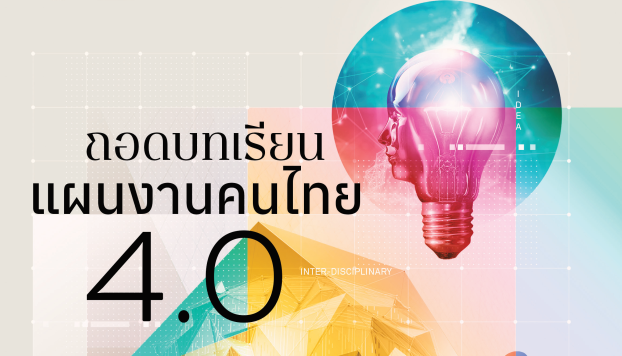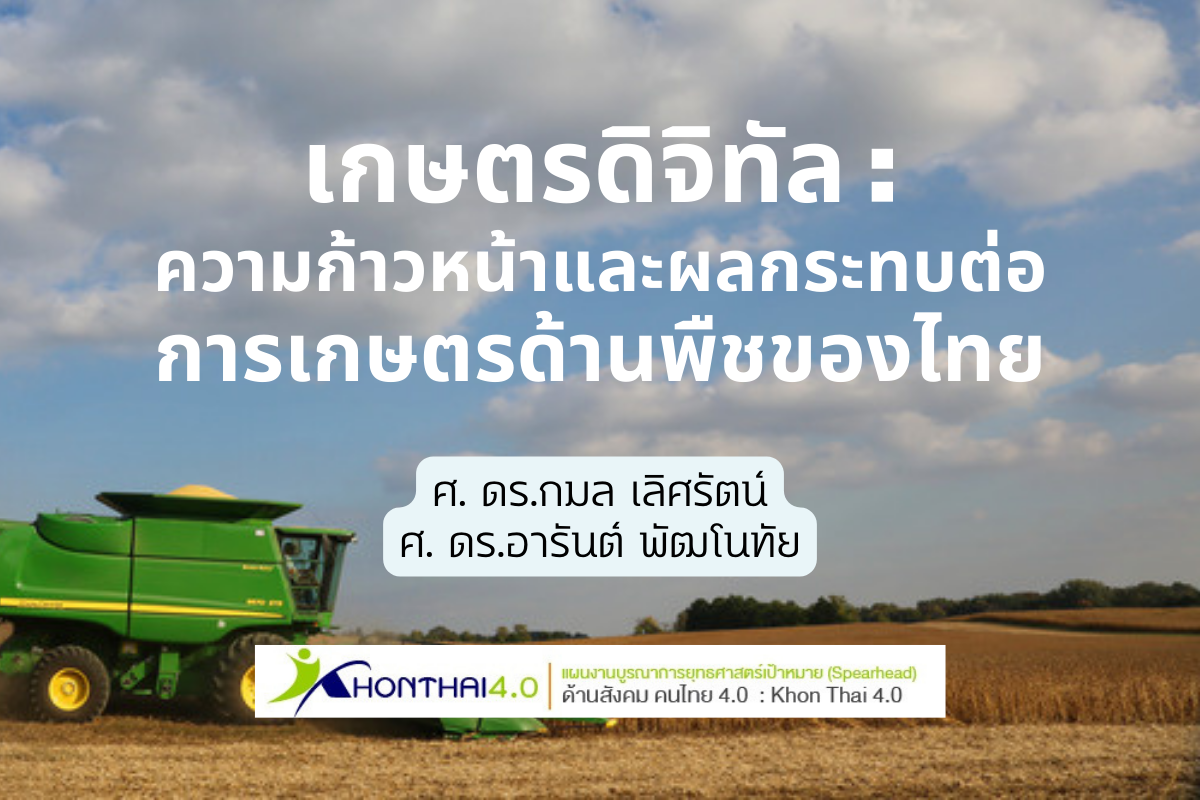
บ- การพัฒนาอภิปัญญาของนักเรียนไทย 4.0 : การศึกษานำร่อง วิชาภาษาไทย-บุญรอด โชติวชิรา
งานวิจัยเรื่อง “การพัฒนาอภิปัญญาของนักเรียนไทย 4.0 : การศึกษานําร่องวิชาภาษาไทย” มีวัตถุประสงค์ 4 ข้อ คือ 1) เพื่อศึกษาองค์ความรู้เกี่ยวกับการพัฒนาอภิปัญญาในการเรียนการสอนภาษาไทย 2) เพื่อศึกษาแนวทางการใช้การวิจัยเชิงปฏิบัติการเพื่อส่งเสริมนักศึกษาฝึกประสบการณ์วิชาชีพครูภาษาไทยในการพัฒนาอภิปัญญาของนักเรียน 3) เพื่อประเมินอภิปัญญาของนักเรียนในวิชาภาษาไทย และ 4) เพื่อศึกษาความสัมพันธ์ของอภิปัญญาและผลสัมฤทธิ์ทางการเรียนของนักเรียนในวิชาภาษาไทย งานวิจัยนี้เป็นการใช้การวิจัยเชิงปฏิบัติการเพื่อส่งเสริมนักศึกษาฝึกประสบการณ์วิชาชีพครูเพื่อการพัฒนาอภิปัญญาและผลสัมฤทธิ์ทางการเรียนวิชาภาษาไทยของนักเรียนในระดับมัธยมศึกษา โดยมีกลุ่มเป้าหมายคือนักศึกษาฝึกประสบการณ์วิชาชีพครู คณะศึกษาศาสตร์ มหาวิทยาลัยเชียงใหม่ที่สนใจเข้าร่วมโครงการจํานวนทั้งสิ้น 5 คน โดยนักเรียนที่สนใจเข้าร่วมโครงการฯ มาจากชั้นเรียนที่นักศึกษากลุ่มเป้าหมายคนละ 1 ห้องเรียน ประมาณห้องเรียนละ 45 คน รวมทั้งสิ้น 225 คนจากโรงเรียนที่ทางคณะศึกษาศาสตร์ได้ส่งไปฝึกประสบการณ์ในปีการศึกษา 2562 ในเขตจังหวัดเชียงใหม่หรือใกล้เคียง เครื่องมือที่ใช้เก็บรวบรวมข้อมูล ได้แก่ 1) ตารางการสังเคราะห์งานวิจัยเกี่ยวกับอภิปัญญาด้านการสอนภาษาไทย 2) แผนการจัดการอบรมปรับความรู้ให้แก่นักศึกษาฝึกประสบการณ์วิชาชีพครูและครูพี่เลี้ยง 3) แบบตรวจสอบคุณภาพของแผนการจัดการเรียนรู้โดยใช้กลวิธีอภิปัญญาของนักศึกษาฝึกประสบการณ์วิชาชีพครู 4) แบบนิเทศการสอนโดยใช้กลวิธีอภิปัญญาของนักศึกษาฝึกประสบการณ์วิชาชีพครู 5) แบบสะท้อนคิดของนักศึกษาฝึกประสบการณ์วิชาชีพครู 6) แบบวัดและประเมินอภิปัญญาของนักเรียน 7) แบบสังเกตอภิปัญญาของนักเรียน 8) แบบวัดผลสัมฤทธิ์ทางการเรียนของนักเรียน 9) แบบสะท้อนคิดของนักเรียนที่เรียนโดยใช้กลวิธีอภิปัญญา และ 10) แบบสัมภาษณ์นักเรียน
ผู้วิจัยได้ออกแบบและวางแผนเกี่ยวกับแนวทางการใช้การวิจัยเชิงปฏิบัติการหรือ Action Research เพื่อส่งเสริมนักศึกษาฝึกประสบการณ์วิชาชีพครูวิชาภาษาไทยในการพัฒนาอภิปัญญาของนักเรียนซึ่งแนวคิดเกี่ยวกับการวิจัยเชิงปฏิบัติการที่ใช้ในงานวิจัยตามที่ได้เสนอไปในข้อเสนอการวิจัย คือ การใช้วงจร PAOR หรือ Plan-Act-Observe-Reflect ในการพัฒนานักศึกษาที่แบ่งออกเป็น 3 วงจร
ผลการวิจัยสรุปได้ดังนี้
- สรุปผลการสังเคราะห์ข้อมูลงานวิจัยเชิงคุณภาพที่ศึกษาเกี่ยวกับการพัฒนาอภิปัญญาในชั้นเรียนภาษาทั้งในประเทศไทยและต่างประเทศ ได้ข้อมูลครบทั้ง 3 ประเด็นคือ ประเด็นกรอบแนวคิดอภิปัญญาในชั้นเรียนภาษาไทย ประเด็นการใช้กลยุทธ์อภิปัญญาในชั้นเรียนภาษาไทย และประเด็นการวัดและการประเมินอภิปัญญาของผู้เรียนในชั้นเรียนภาษาไทย
- ผลการศึกษาแนวทางการใช้การวิจัยเชิงปฏิบัติการหรือ Action Research เพื่อส่งเสริมนักศึกษาฝึกประสบการณ์วิชาชีพครูวิชาภาษาไทยในการพัฒนาอภิปัญญาของนักเรียน ซึ่งแนวคิดเกี่ยวกับการวิจัยเชิงปฏิบัติการที่ใช้ในงานวิจัยตามที่ได้เสนอไปในข้อเสนอการวิจัย คือ การใช้วงจร PAOR หรือ Plan-Act-Observe-Reflect ในการพัฒนานักศึกษาที่แบ่งออกเป็น 3 วงจร
- ผลการประเมินอภิปัญญาของนักเรียนในวิชาภาษาไทย เมื่อพิจารณาจากคะแนนรวมพบว่า นักเรียนมีคะแนนอภิปัญญาโดยรวมเฉลี่ยหลังเรียนคือ 3.99 คิดเป็นร้อยละ 79.80 จากคะแนนทั้งหมด ในรายละเอียดพบว่า ด้านความรู้เกี่ยวกับการรู้คิด นักเรียนมีคะแนนเฉลี่ยของอภิปัญญาเพิ่มขึ้นจากก่อนเรียนและหลังเรียน และด้านการกํากับการรู้คิด นักเรียนมีคะแนนเฉลี่ยของอภิปัญญาเพิ่มขึ้นจากก่อนเรียนและหลังเรียน ทั้งนี้ได้ค่า Effect Size (d) โดยภาพรวมเท่ากับ 0.31 ถือว่าคะแนนเพิ่มขึ้นในระดับปานกลาง เมื่อพิจารณาองค์ประกอบด้านความรู้เกี่ยวกับการรู้คิด (d = 0.29) พบว่าเพิ่มขึ้นในระดับต่ํา ในขณะที่ด้านการกํากับการรู้คิด (d = 0.33) พบว่าเพิ่มขึ้นในระดับปานกลาง
- สรุปผลการศึกษาความสัมพันธ์ของอภิปัญญาและผลสัมฤทธิ์ทางการเรียนของนักเรียนในวิชาภาษาไทย ทั้ง 5 โรงเรียน เมื่อพิจารณาโดยภาพรวมพบว่า สําหรับความสัมพันธ์ของอภิปัญญาและผลสัมฤทธิ์ทางการเรียนของนักเรียนในชั้นเรียนภาษาไทยนั้น พบว่าค่าสัมประสิทธิ์สหสัมพันธ์ระหว่างอภิปัญญาและผลสัมฤทธิ์ทางการเรียนของนักเรียนในชั้นเรียนของนักศึกษาวิชาเอกภาษาไทยทั้ง 5 คนที่เข้าร่วมโครงการนี้อยู ่ในช่วง 0.25 – 0.68 (ต่ำถึงปานกลาง) จากผลที่ได้อาจกล่าวได้ว่าในภาพรวมค่าความสัมพันธ์ของอภิปัญญาและผลสัมฤทธิ์ทางการเรียนของนักเรียนในชั้นเรียนวิชาภาษาไทยมีแนวโน้มของระดับความสัมพันธ์คือระดับต่ํา



